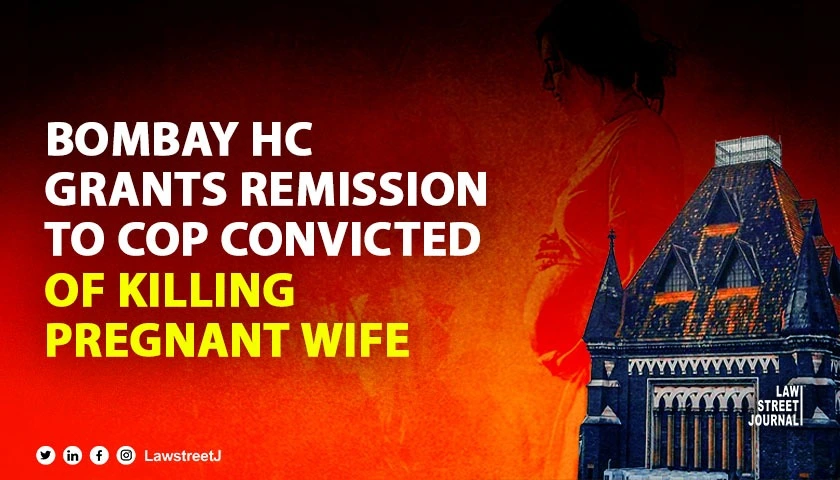Mumbai: The Bombay High Court at Nagpur has delivered a significant judgment granting remission to a police officer convicted of killing his pregnant wife, emphasizing that the crime does not fall under the category of exceptional violence or brutality.
Justices Nitin Sambre and Vrushali Joshi made notable observations regarding the nature of the crime and its categorization under the Government Resolution.
Bombay HC: Crime Lacked Exceptional Brutality in Cop’s Wife Murder Case
The court addressed the case of Pradipsingh Thakur, who was convicted of strangling his pregnant wife over unfulfilled dowry demands. The court noted: “Perusal of the record reveals that the petitioner strangled his pregnant wife for not fulfilling dowry demands, resulting in her death within seven years of marriage.”
Addressing the gravity of the offense, the court observed: “The act of strangulation, while violent, cannot be termed as causing death with exceptional brutality. The victim suffered two injuries: a ligature mark on the neck and a nail abrasion on the right side of the neck.”
Remission Granted Under Government Resolution: Bombay High Court Ruling
The court highlighted the legal principles governing such cases, stating: “Just because the petitioner was a police officer who murdered his pregnant wife does not disentitle him from receiving the benefit of remission provided under Section 432 of the Criminal Procedure Code.”
In response to the State’s objections, the court concluded: “The State’s refusal to admit the petitioner for remission cannot be sustained. The petitioner is categorized under category 2(b) of the Government Resolution, which applies to crimes committed with premeditation.”
Advocate Y. P. Bhelande appeared on behalf of the petitioner. The Additional Public Prosecutor represented the State.
Case title: Pradipsingh Murlidharsingh Thakur vs State of Maharashtra




![Husband Can Also Claim Alimony/Maintenance From Wife: Bombay High Court Orders Woman To Pay Alimony To Ex-Husband [Read Order]](/secure/uploads/2022/04/lj_2823_Divorce.jpg)






